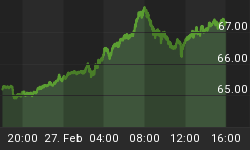It is only a matter of time until something blows...
I always try to keep a positive attitude, even in times of struggle. But to me it is one thing to keep a positive attitude and another to over emphasize positive achievements. This is what's happening with the recent sovereign debt auctions in Europe.
These new government bonds were lauded as having sold very well, with the cost of funding kept low. For instance, the Spanish 10-year government bond yield is now about 5%, which is the lowest since March of 2012. But is that the whole story? Does the positive action really indicate recovery?
There are many who believe that the European Central Bank and even the US Fed were both involved in buying Spain's new debt yesterday, and keeping yields down. Even ignoring this as only hearsay, there is still trouble in the illusion of a sudden paradise.
Spain's jobless rate is at 26%, the economy contracting another 1.7% per year at last count. Their pain and suffering continues to grow. Greece's 10-year interest rates are down more than 23 percentage points from this time a year ago, but its government depends more than ever on Eurozone and IMF life-support. The tiny island state of Cyprus is essentially in default and needs to be bailed out. France is throwing itself into African adventure as its economy stalls again. And across the Channel, the United Kingdom's GDP is heading for triple-dip recession - down 0.3% in the last quarter of 2012, and dead-flat at 0% growth from a year before.
The most important thing about these numbers is how they affect people. The people are suffering. More unrest is sure to follow.
In the European Union, Germany is the only diamond in the rough. But can they carry the whole EU on their backs, and do they want to? The United Kingdom has all but threatened a possible exit, with the prime minister promising a referendum apparently on issues of sovereignty, but it's well-timed with the domestic economy's headlines this week. France and Italy - the other two large European economies - are also suffering from increasing unemployment. This raises serious doubt about the future success of the EU and the ECB's programs.
In the meanwhile, we have slightly positive job growth numbers creating a positive view of the US economy. However this morning's minus 7.3% reading on New Home Sales - when the expectation was of up 2.1% - just goes to show that our economic forecasters are not even as good as our weathermen. If not for Federal Reserve quantitative easing the number may have been much worse.
Sure, the stock market is making new highs. But as I have argued before, this is in no small way because of the devaluation of the US Dollar due to constant increases in the money supply generated by the Fed. Add to this the unnaturally low interest rates - also held by the Fed - and it forces money to go anywhere but into bank deposits unless you want to lose spending power in real terms.
The bottom-line on this is that as long as we continue to have the global central banks increasing money supply and manipulating the interest rate markets to unnatural levels it is only a matter of time until something blows. This is like building a dam to hold off a river but with no way to redirect the pressure.
So as we see unemployment high around the globe these machinations will only hide the pain for the short term. It is my belief that gold, even at current levels, needs to be an important part of any investor's portfolio. If you have money and need to protect its value, it should prove one of the few ways to protect yourself from the impending break in this wall of false perceptions.















